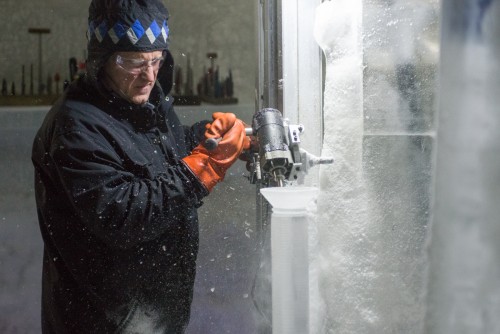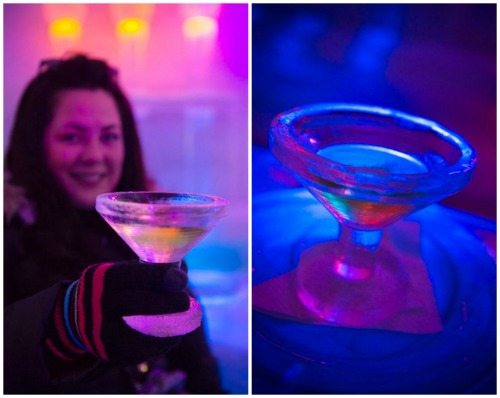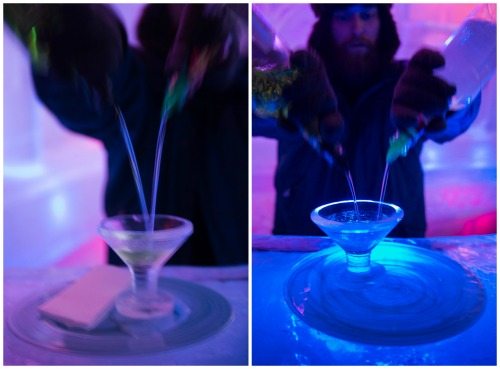It’s so cold here in the middle of Alaska, our martini glasses are made of ice!
Bonnie, here, coming to you from our Northern Lights Photo Expedition at Chena Hot Springs in Alaska. Chena is home to the largest year-round ice structure… the Aurora Ice Museum, which serves appletinis in ice glasses.
You can take the glass with you… but good luck getting it home.
Here, Steve Brice, one of the museum founders and 16-time world champion ice carver, fashions the glasses from a frozen column:
Shooting inside the ice museum was a delight, with colored lights shining through the ice (plus, at 25 degrees, it’s much warmer than it is outside!). But it was dark in there, so we had to raise our ISO… a lot.
A question I hear often is: Shouldn’t you use the lowest ISO possible to avoid noise?
That’s true. But an ISO that’s TOO low will force your camera to have a slow shutter speed… which leads to blurry photos.
For example, here are two shots of the bartender, Riley, pouring a drink.
The first one was taken at ISO 3200… and the second at ISO 6400:
Notice how in the first photo (ISO 3200), everything is blurry. In the second photo (ISO 6400), there’s still some motion blur where his hands and the liquid are moving… but the glass and plate are sharp.
When it comes down to it, it’s better to have some noise in your images than it is to have blur. You can fix noise in a processing program like Lightroom. But you can’t fix blur. So don’t be afraid to turn up that ISO when need to manage ISO in your photos.
Understanding how ISO affects your photos is one of the most important things you’ll learn as a photographer. Get it right and it makes a big difference to the quality of your shots, like you’ll see in this video:
And if you ever go to the Aurora Ice Museum, spring for the appletini… but bring gloves. Ice glasses are cold!




